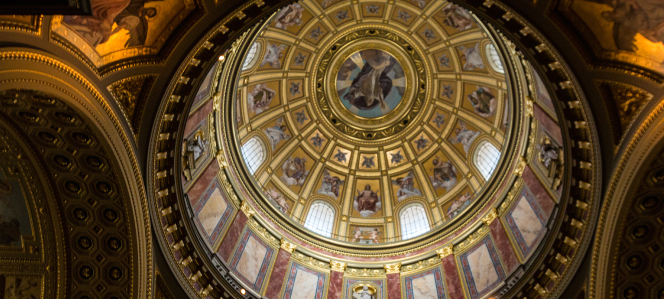Atheism is on the rise. Skeptical thinkers like Richard Dawkins, Christopher Hitchens, and Sam Harris vigorously attack belief in God as irrational or, even worse, dangerous. The so-called New Atheism has attracted millions of young people thanks to bestselling books such as The God Delusion and God Is Not Great.
How should Christians respond? How can we turn the tide of secularism and draw people back to God?
You’ll discover how in “The Mystery of God,” a new six-part film series and study program by Fr. Robert Barron. The lessons reach into our rich intellectual tradition. Using the insights of St. Augustine, St. Thomas Aquinas, Pope Benedict XVI, you’ll uncover a clear yet sophisticated understanding of what we mean by “God”.
Who is God? And why does he matter? Watch this series and you’ll not only learn the answers yourself, but you’ll discover how to share them with others – especially those who no longer believe.
This film and study program are scheduled to debut in Fall 2015. Be the first to know when it’s available by signing up here:
You can learn more at MysteryOfGod.com, including information about the study program written by Trent Horn, an expert apologist at Catholic Answers.
Below you’ll find a summary of the six lessons from the film and study program.
LESSON 1 – ATHEISM AND WHAT WE MEAN BY “GOD”
There are lots of views about God. Some see him as a mythical fairy in the sky, others as the Supreme Being. Some consider him a threat to our freedom. But for Christians, God is not one being among many. He’s not a competitor to our flourishing. God is that than which nothing greatest can be thought, the strange and unique source of being itself. Before discussing anything about God we must become clear about one question: who is God?
LESSON 2 – ST. THOMAS AQUINAS AND THE PATHS TO GOD
In the thirteenth century, St. Thomas Aquinas composed his famous five paths to God. His proofs don’t depend on the Bible or divine revelation. They simply start from the world around us—trees, birds, buildings, and even ourselves. Thomas noticed that none of these things have to exist. But if that’s the case, there must be some cause behind them, something grounding their existence. For Thomas and all Christians since, we know this source of all being by its ancient name—God.
LESSON 3 – THE DIVINE ATTRIBUTES
Once we understand who God is, we naturally wonder, “What is he like? How does he act?” We can never fully answer those questions. Yet we can know that God is self-sufficient—he doesn’t need the world but creates it out of love. God is omniscient, knowing all things. God is omnipresent, everywhere in existence. Through these attributes we discover a God who presses upon the world, always and everywhere, not aggressively but only with love.
LESSON 4 – PROVIDENCE AND THE PROBLEM OF EVIL
Perhaps the most difficult question in theology is this: Why does God allow evil? If God is all-good and all-powerful, then why are our lives marked with pain and suffering? These are not abstract questions. They go right to the heart of our experience. We have each wrestled with misery, wondering when God would intervene. As with Job, God does not give us answers. He instead offers a person: the crucified Jesus, through whom God enters our suffering and makes it his own.
LESSON 5 – EXPLORING THE TRINITY
Many religions and philosophies profess that “God is loving.” Loving is something God does, it’s one of his traits. But Christianity’s strange and startling claim is that God is love. It’s not what he does, it’s who he is. Love always requires three things: a lover, a beloved, and the love shared between them. This is what we mean when we say God is a Trinity—Father, Son, and Holy Spirit, one God in three persons.
LESSON 6 – THE GOD WHO IS LOVE
The book of Genesis reveals that we are made in the image and likeness of God. What does this mean? For St. Augustine it affirmed that our own traits—our minds, our self-knowledge, our self-love–can tell us something about God as a Trinity. What is Christianity finally about? What is the deepest meaning of being and all reality? The Christian answer is this: God is love, a play of Father, Son, and Holy Spirit.
Learn more about the film and study program at MysteryOfGod.com. And don’t forget to sign up for email updates!
